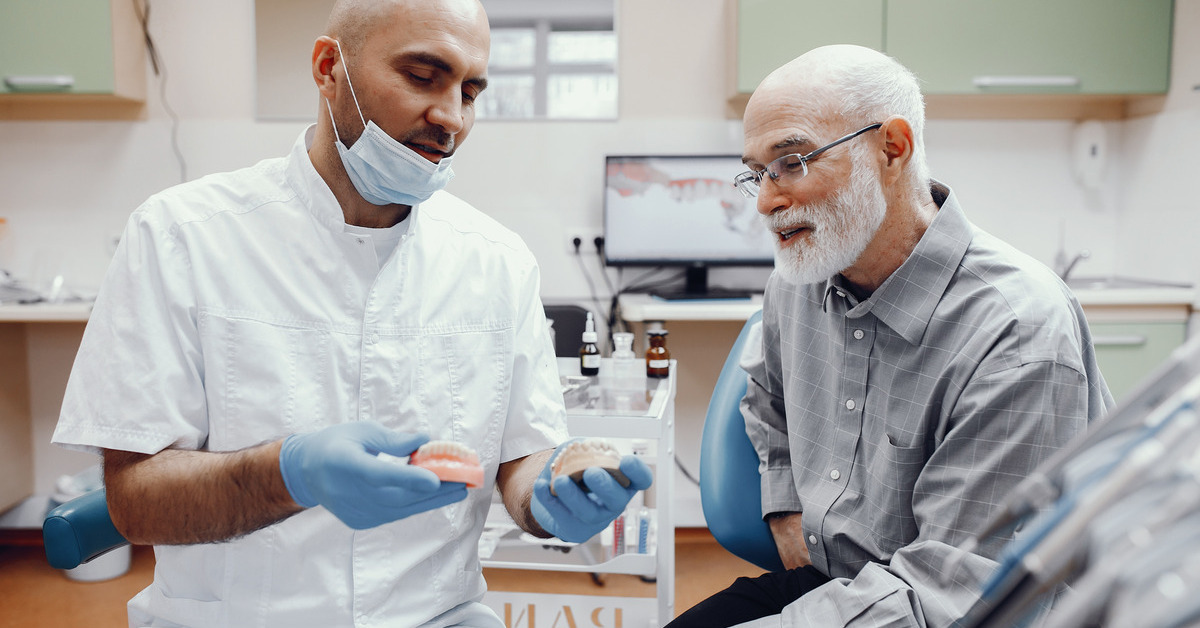
When people consider getting dentures, they often envision a significant improvement in both their oral function and appearance. However, the process of getting them can seem rather intimidating. Fortunately, if you know what to expect when transitioning to dentures, this process can go much more smoothly and seem far less stressful. From initial consultations and impressions to the fitting and adjustment period, knowing what to expect will empower you to make informed decisions and enjoy the benefits of your new smile.
The Dentures Will Feel Odd in Your Mouth
Experiencing a sense of discomfort in your mouth when you first begin wearing dentures is perfectly normal. Initially, they may feel bulky or foreign as your mouth adjusts to them.
Usually, patients find this sensation to be temporary. Rest assured that the dentures will feel more natural in your mouth over time. Embracing this transitional phase allows you to fully appreciate the enhanced comfort and functionality that dentures will ultimately provide.
You Will Initially Have to Eat Soft Foods
In addition to adjusting to the feel of the new dentures, you will need to make some temporary revisions to your diet. Instead of eating tough, sticky foods that require substantial effort, stick to soft foods, such as yogurt, applesauce, and mashed potatoes. Doing so also helps your mouth adjust to the new dental appliance and helps you learn how to chew effectively without discomfort.
If you need further guidance, talk to your dentist about what is safe to eat during this time. This careful approach ensures that you won’t put any undue stress on your gums and surrounding tissues. Keep in mind that over time you’ll regain the ability to eat a wide variety of foods, enhancing your overall nutritional intake and enjoyment of meals.

You May Have Trouble Tasting Food
One surprising effect of getting dentures is that you may experience a diminished sense of taste in your mouth. This occurs because upper dentures cover the palate, which houses taste buds that aid in flavor perception.
Although this change can be disconcerting, rest assured that your sense of taste typically returns as you acclimate to the dentures. However, if this alteration of your taste persists, consult your dentist. They can assess whether the fit of your dentures is a factor and adjust if necessary.
Your Mouth May Have Sore Areas
Experiencing sore areas in your mouth is common when you first start wearing dentures. These sore spots result from the pressure and friction of the new appliance against your gums and soft tissues. While this discomfort may be bothersome, it usually subsides as your mouth adjusts and the tissues toughen.
To alleviate soreness, try using an over-the-counter pain reliever. If the discomfort continues or becomes more severe, schedule an appointment with your dentist. They can adjust the fit of your dentures to relieve pressure points and enhance your comfort. However, try to give your mouth adequate time to adapt, as this process varies for each individual.
A Follow-Up with Your Dentist Will Be Necessary
Regular follow-up appointments are crucial so that your dentist can determine how you are adapting to the dentures. During these appointments, make sure you tell your dentist about any sore areas so they can provide you with care and make the necessary adjustments. Never skip these follow-ups, as they are essential for maintaining comfort and functionality.
The Dentures May Slip Occasionally
Another thing to expect when transitioning to dentures is that they may slip when you speak or eat. This movement is completely normal and will occur as your facial muscles learn to hold the dentures in place.
Over time, they will adapt and your dentures will become more stable. You can also talk to your dentist about using an approved adhesive during this period. In addition, try biting or swallowing before you start talking so that your mouth will do a better job of holding your dentures in place.
You Will Need to Remove the Dentures at Night
Removing your dentures at night is an essential part of maintaining your oral health. This practice gives your gums a break from the dentures and even promotes better health. If you left them in, you would increase your chances of illnesses and decrease the service life of the dentures themselves.
Store your dentures in water or a suitable soaking solution overnight to keep them clean and prevent them from drying out. This routine helps to maintain the integrity and longevity of your dentures.
You Must Clean Your Dentures
Just as cleaning your real teeth is important, you must do the same for your dentures. This allows you to remove food particles, plaque, and bacteria, preventing infections and maintaining the appliance’s appearance. A soft-bristled denture brush and a non-abrasive denture cleaner are essential tools for this process. Avoid using a hard toothbrush or toothpaste, as these can scratch the denture surface and promote bacteria growth.

They Will Provide the Support You Need
Finally, the last thing you can expect as you switch to dentures is that they will ultimately provide you with the support that your mouth needs. You should find the acts of eating food and speaking to be much easier, and your appearance should improve substantially.
In addition to restoring your perfect smile, the dentures will be able to support the muscles in your face, helping to eliminate a sunken appearance. This added facial support can significantly enhance your overall appearance, boosting your self-confidence and making you feel more comfortable.
These examples show that transitioning to dentures involves several adjustments, but you can enjoy the benefits they offer by being patient and providing them with the proper care. From managing initial dietary changes to maintaining regular dental check-ups, dentists ensure that each step will allow a smooth transition and long-term success.
Pinnacle Dental Associates can help you enjoy that success with our dentures in Albany, Oregon. We offer both removable and temporary dentures that will not only allow you to improve the appearance of your mouth but also feel like natural teeth.
